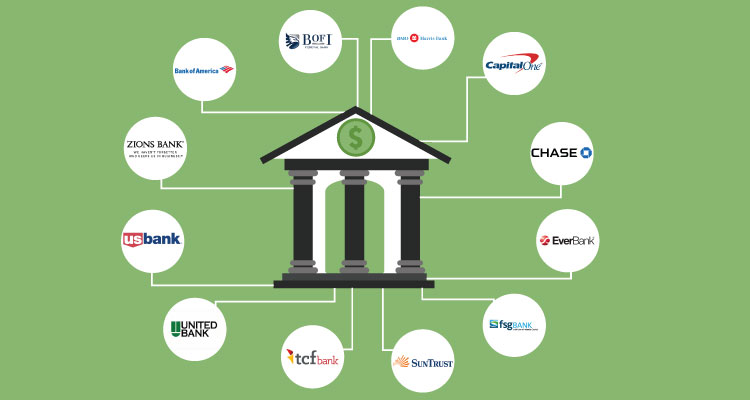Your bank account routing and account numbers might not seem very significant, but they act as an important gateway for the cash going into and out of your bank account. Freelancers and other small business owners may find keeping your routing and account numbers handy is a good idea, as you’ll need them somewhat frequently when looking to move funds in or out of your account online or when working with business partners.
Table of Contents
ToggleClient payments
The best use for your account and routing numbers is getting paid! The ultimate reason you work, after all, is to make money. An electronic funds transfer is typically the cheapest and easiest way to get paid by any client. If you work online, this payment method is the standard way to get cash into your bank account. And that remains the case when you use an external payment or invoice processor like Due.com.
Some larger clients prefer to pay me via a direct funds transfer. For others, I use a payment process connected to my website or online invoicing system. In all cases, the cost is quite reasonable and the payment processor ensures the funds show up in my account quickly and on schedule. What more can you ask for?
Payroll
For tax reasons, I found it is better to run my business as an S-Corporation and pay myself a regular paycheck for the work I do at my company. It doesn’t matter if you need to just pay one person or a whole slew of employees, you may need your bank routing and account numbers for payroll. This makes sense for a lot of reasons. Here’s how I have my payroll set up:
- Automatic recurring payroll (salary) with a fixed amount every Friday
- Payroll service automatically withdraws payment from business checking using routing and account numbers from the business account
- Payroll service automatically deposits payment into my personal checking using routing and account numbers from my personal account
- Lastly, payroll service deducts state and federal taxes using routing and account numbers from the business account and automatically sends them to government tax authorities
That’s it! It works easily and simply. After a relatively quick setup process, I had this up and running and don’t have to touch a thing to keep my regular paychecks showing up in my personal account. Aside from getting paid first in the business account, that is.
ACH transfers
If you want to transfer money between business accounts or business and personal accounts at different banks, you’ll need to tap into the same electronic fund transfer system used for payments and payroll as described above: the ACH system. ACH is short for the automated clearinghouse, a system from the Federal Reserve Bank that allows banks to send money to accounts at other banks using just routing and account numbers. Pretty slick, right?
I use ACH transfers regularly to send money from my business checking to my personal checking. This is for “dividend” payments, or member’s draws, on top of my regular payroll. I also use ACH transfers to send money between my personal checking, savings, and brokerage accounts at outside banks or financial institutions.
Tax payments
They say there are only two certainties in life: death and taxes. Regardless of how you feel about the old saying when tax payments come due you have a few options to pay. You can pay via a credit or debit card for an extra fee, or pay using an electronic funds transfer with your routing and account numbers at no extra cost!
That’s right. Just enter your routing and account numbers on your tax forms when filing and you can get a tax refund or make a tax payment right from your bank account using account details.
Credit card bills
Last on this list but far from the last way you may use your numbers: credit card bills. I use my credit card everywhere possible to maximize my travel hacking miles and points. When it comes time to pay those cards, I look to one of two choices. First: online bill pay at my bank. In this case, the bank uses the credit card company’s routing and account numbers to pay my bill on my behalf.
Second, I can enter my check account routing and account numbers on my credit card company’s website to pay with an ACH transfer. Either way, it is quick, free, and easy!
Keep your bank account routing and account numbers secure
Your bank account and routing numbers are useful to some shady characters with more malicious intent for the same reason they are useful to you: those numbers give someone direct access to your bank account balance. Keep your numbers secure to ensure your funds never go away without your permission. But when you use them well and keep them secure, you can use your bank account routing and account numbers as a tool for easy and quick funds transfer for many years to come.
















